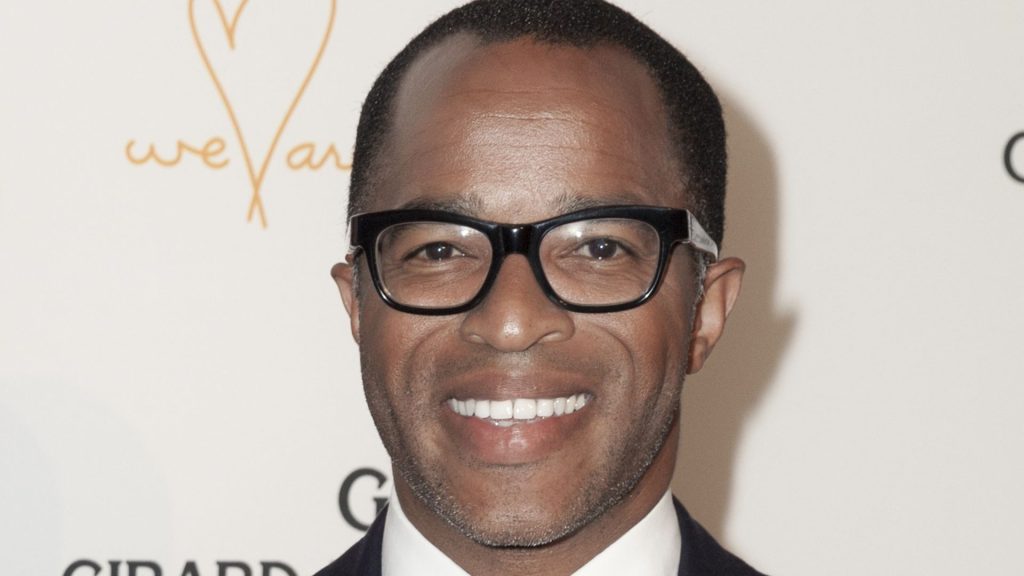Jonathan Capehart, a veteran columnist, has announced his departure from the Washington Post after nearly two decades. The paper’s owner, Jeff Bezos, has decided to steer the opinion section towards a more “unapologetically patriotic” stance, emphasizing personal liberty and free markets. This shift in focus didn’t align with Capehart’s views, prompting him to leave.
On PBS NewsHour, Capehart openly discussed his decision, explaining that the new editorial direction didn’t leave room for his voice. “There was just not going to be any room for a voice like mine,” Capehart remarked, highlighting his concerns about the changes. The decision to leave wasn’t taken lightly, but Capehart felt it was necessary to have his perspectives heard elsewhere.
Bezos’s new vision for the Washington Post is clear: the paper will champion the values of personal freedom and economic liberty. This has sparked some internal changes, and Capehart found himself at odds with this new direction. The shift, while aligning with certain American ideals, did not resonate with Capehart’s viewpoints.
The Washington Post has not made any official statements about Capehart’s exit or the broader editorial restructuring. Nonetheless, the paper has been offering voluntary buyouts to staff, signaling a strategic shift. These changes reflect Bezos’s desire to realign the Post with core American values.
Capehart’s departure was acknowledged by his colleagues at PBS, with co-host Amna Nawaz expressing gratitude for his contributions. Nawaz noted, “Jonathan Capehart, we’re so glad your voice is heard right here at our table.” This sentiment underscores the respect and recognition Capehart continues to receive in the media industry.
Capehart continues to contribute to MSNBC along with his role on PBS NewsHour. His ability to voice his opinions in environments that align with his perspectives remains important to him. Despite leaving the Post, Capehart’s influence and presence in the media landscape persist.
Brent Baker of the Media Research Center commented on Capehart’s decision, noting the analyst’s discontent with the state of the country. Baker pointed out that Capehart’s views were more suited to platforms like PBS and MSNBC. This observation reflects the ongoing polarization in media and the challenges of aligning personal beliefs with organizational values.
The Washington Post’s transition comes at a time when traditional media outlets face declining trust. Bezos’s efforts to reshape the paper could be seen as a response to this broader media landscape shift. The focus on patriotism and free markets is part of this strategic realignment.
Capehart’s exit is one of several high-profile departures from the Post as it undergoes this transformation. The changes in the opinion section reflect a significant editorial pivot. This move is part of Bezos’s broader plan to adapt to a changing media environment.
While Capehart’s departure marks the end of an era at the Post, it also highlights the evolving nature of media narratives. The tension between personal beliefs and editorial direction is a common theme in today’s media. Capehart’s decision underscores the importance of finding a platform that aligns with one’s voice.
The Washington Post’s new direction emphasizes a return to traditional American values. This shift is seen as a way to address the challenges facing legacy media outlets. By focusing on personal liberty and free markets, the Post aims to attract readers who share these ideals.
Capehart’s experience is not unique, as many journalists face similar dilemmas in the current media landscape. His decision to leave reflects a broader trend of media professionals seeking platforms that align with their viewpoints. This dynamic is shaping the future of journalism.
As media outlets navigate these changes, the debate over editorial direction and personal beliefs continues. Capehart’s departure is a reminder of the complexities involved in maintaining journalistic integrity. The balance between expressing one’s views and adhering to organizational guidelines is a constant challenge.
The Washington Post’s strategic realignment is part of a larger effort to remain relevant in a rapidly changing media environment. Bezos’s vision emphasizes a commitment to traditional American principles. This approach aims to rebuild trust with readers who value these ideals.
Capehart’s move illustrates the difficulty of aligning personal and organizational values in today’s media. His departure serves as a case study in the ongoing evolution of journalistic practices. The decision highlights the importance of finding a platform that respects and amplifies one’s voice.
The media landscape is undergoing significant transformations, with outlets like the Washington Post leading the charge. The emphasis on patriotism and free markets is part of a broader trend. These changes reflect the shifting dynamics of media consumption and audience expectations.
As Capehart continues his career on PBS and MSNBC, his experience at the Post remains a pivotal moment. His departure underscores the challenges of navigating editorial changes in a polarized media environment. The ongoing dialogue around media direction and journalistic values is more relevant than ever.



